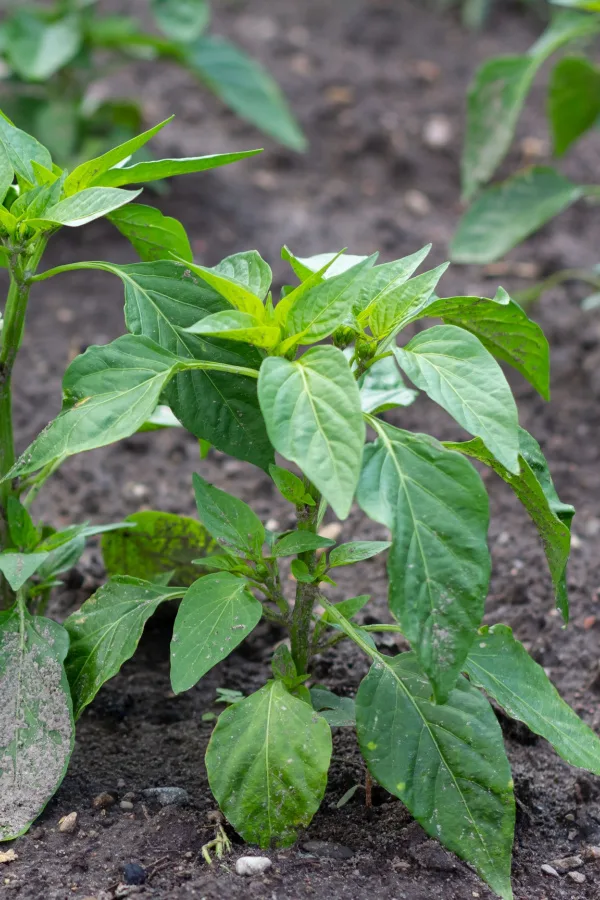Best Fertilizers for Peppers: Boost Development and Flavor with Our Leading Picks
Organic Vs. Synthetic Fertilizers: Which Is Best for Supporting Healthy Pepper Plants?
In the world of supporting healthy and balanced pepper plants, the selection between organic and artificial fertilizers stands as an essential decision with significant effects. While both choices goal to provide vital nutrients to sustain plant growth, the nuances of their influence on the dirt, plant health, and the environment spark a dispute that mirrors throughout the horticulture neighborhood. Comprehending the distinct advantages and prospective challenges of each plant food type is essential for pepper farmers seeking to optimize their yields while maintaining a sustainable and eco-conscious strategy.
Advantages of Organic Plant Foods
Organic plant foods use a lasting and environmentally-friendly technique to nourishing pepper plants, providing important nutrients without using artificial chemicals. These all-natural plant foods are derived from organic sources such as compost, manure, bone meal, and seaweed, promoting soil health and wellness and biodiversity. Unlike artificial plant foods, natural choices launch nutrients slowly, making sure a consistent and well balanced supply for pepper plants to grow.
One considerable benefit of natural fertilizers is their ability to boost dirt structure and water retention. By improving dirt wellness, natural fertilizers advertise useful microbial task, which helps in nutrient uptake by pepper plants. Additionally, natural plant foods decrease the threat of chemical run-off, protecting water resources from pollution and protecting the atmosphere.
Furthermore, natural fertilizers contribute to lasting soil fertility by promoting the growth of helpful dirt microorganisms. These microorganisms aid damage down organic matter, launching nutrients in a form that is easily accessible to pepper plants. best fertilizers for peppers. By fostering a healthy and balanced soil environment, natural fertilizers sustain sustainable pepper growing practices that profit both plants and the environment
Downsides of Synthetic Plant Foods
Synthetic plant foods, in contrast to their natural counterparts, posture different drawbacks when made use of to nurture pepper plants, impacting both plant wellness and ecological sustainability. One major downside of synthetic fertilizers is their propensity to leach nutrients from the dirt promptly.
Moreover, the overuse of synthetic fertilizers can contribute to water contamination. Excess plant foods not taken in by plants can get rid of into water bodies, causing eutrophication, where algae flowers diminish oxygen degrees in the water, hurting marine life. Artificial plant foods are usually obtained from non-renewable sources, such as fossil fuels, adding to carbon discharges and ecological degradation throughout their production.
Nutrient Absorption Contrast
Effective nutrient absorption plays a critical function in the overall health and development of pepper plants. When contrasting artificial and natural fertilizers in terms of nutrient absorption, natural fertilizers have the advantage of giving a much more balanced and slow-release resource of nutrients (best fertilizers for peppers). Organic plant foods contain a variety of macro and micronutrients that are not just advantageous for the plants however also promote healthy soil microbial task, which aids in nutrient uptake. On the other hand, artificial fertilizers commonly offer a fast release of nutrients, which can result in seeping and drainage, causing lower nutrient absorption rates by the plants.
In addition, organic fertilizers boost dirt structure and water retention ability, permitting pepper plants to accessibility nutrients more successfully. This improved dirt top quality assists in root development, making it possible for better nutrient absorption. Artificial fertilizers, although at first boosting plant development due to their high nutrient focus, might hinder long-lasting nutrient absorption by degrading look at more info soil health and wellness with time.
Ecological Impact Factors To Consider

On the various other hand, artificial fertilizers, although usually even more focused and right away available to plants, can have harmful impacts on the setting if not used correctly (best fertilizers for peppers). Their production more information calls for high power inputs, leading to greenhouse gas exhausts and contributing to environment modification. The drainage of excess artificial fertilizers can infect water sources, leading to eutrophication and hurting water communities.
Finest Fertilizer Practices for Peppers
When feeding pepper plants, enhancing nutrient uptake and minimizing ecological impact are essential considerations. To accomplish this, it is crucial to adhere to ideal plant food practices customized to the details requirements of pepper plants. One important technique is to perform a dirt examination prior to using any fertilizers. This examination can determine the pH degree of the dirt and identify any type of nutrient deficiencies, directing you in selecting the most appropriate plant food formula.
An additional essential method is to feed pepper plants at the best time. Commonly, peppers benefit from receiving plant food at growing and after that once again when they start to flower. Over-fertilizing can lead to vitamins and mineral imbalances and harm the plants, so it is vital to adhere to recommended application prices.
Additionally, choosing a well balanced plant food with an NPK proportion that suits pepper plants' requirements is basic. Organic fertilizers, such as compost or manure, can be outstanding options as they release nutrients gradually and improve dirt framework over time. Artificial fertilizers can offer a quick nutrient increase when required. Ultimately, integrating organic and synthetic fertilizers deliberately can assist support healthy pepper plants while minimizing environmental impact.
Final Thought

Organic fertilizers offer an environmentally-friendly and sustainable technique to nourishing pepper plants, giving necessary nutrients without the use of artificial chemicals. Unlike synthetic plant foods, natural options release nutrients slowly, guaranteeing a balanced and stable supply for pepper plants to prosper.
Artificial fertilizers, in contrast to their organic equivalents, posture different disadvantages when used to nourish pepper plants, impacting both plant health and wellness and ecological sustainability. When contrasting organic and synthetic plant foods in terms of nutrient absorption, natural plant foods have the benefit of supplying an extra balanced and slow-release source of nutrients.Moreover, natural fertilizers boost dirt structure and water retention ability, enabling pepper plants to access nutrients extra successfully.